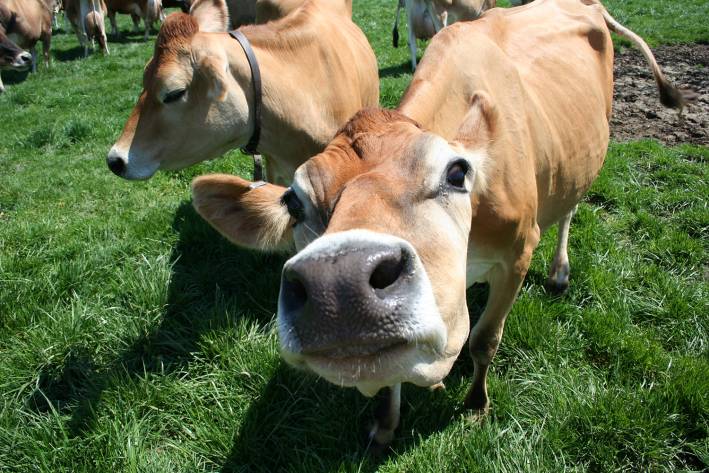If you choose to eat meat, consider organic.
Reasons to Eat Organic Meat
Compared to conventionally produced meat, it’s healthier for you and your family, better promotes animal welfare, and is more sustainable for planet Earth.
-
Health Factors
The U.S. Department of Agriculture (USDA) National Organic Program regulates all certified organic livestock.
Any meat bearing the green USDA organic seal must be raised without antibiotics, synthetic growth hormones, genetically modified organisms (GMOs), and synthetic pesticides.
It’s also less likely to be contaminated with bacteria—including those resistant to multiple drugs—that can cause food-borne sicknesses, per a study from the Johns Hopkins Bloomberg School of Public Health.
A meta-analysis found that organic meat is almost 50 percent higher in omega 3s than nonorganic meat. A European study found a propensity for higher antioxidant levels in organic meat, as well.
-
Ethical Factors
The USDA standards for organic food are designed to provide more humane treatment of animals raised on organic farms.
Animals spend the grazing season in the pasture and have year-round outdoor access, with sun and shade, shelter, fresh air and clean water, and exercise areas.
They eat an organic diet and are treated preventively whenever possible to avoid illness.
-
Environmental Factors
Organic farming techniques have a lower impact on the environment.
They contribute to carbon sequestration, in which pastureland captures and contains carbon dioxide from the air, protect water and soil quality, and produce fewer greenhouse gasses than conventional farming.
In addition, synthetic fertilizers and pesticides, key agricultural drivers of climate change, are banned in organic farming.




